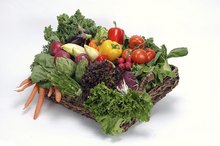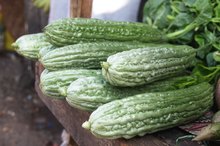What does fact checked mean?
At Healthfully, we strive to deliver objective content that is accurate and up-to-date. Our team periodically reviews articles in order to ensure content quality. The sources cited below consist of evidence from peer-reviewed journals, prominent medical organizations, academic associations, and government data.
- National Institute of Diabetes and Digestive and Kidney Diseases: Indigestion
- National Institute of Diabetes and Digestive and Kidney Diseases: Gas
- U.S. Food and Drug Administration: Produce Safety Safe Handling of Raw Produce and Fresh-Squeezed Fruit and Vegetable Juices
The information contained on this site is for informational purposes only, and should not be used as a substitute for the advice of a professional health care provider. Please check with the appropriate physician regarding health questions and concerns. Although we strive to deliver accurate and up-to-date information, no guarantee to that effect is made.
Why Does Juicing Vegetables Cause Indigestion?
If you are just starting to consume juiced vegetables, you may have started to do so because of health reasons. While vegetables can actually aid in digestive health, eating them in the concentrated form, such as when juicing, may be too much for your digestive system. You might also have an underlying digestive disorder that is being exacerbated by consuming juiced vegetables.
Symptoms
Indigestion is characterized by a full feeling after eating and pain and a burning sensation in the epigastrium – the area between the lower chest bone and navel. Less common symptoms include bloating and nausea, but that could be the sign of another digestive problem, according to the National Institute of Diabetes and Digestive and Kidney Diseases. Gas and bloating are symptoms that can occur after juicing vegetables, but they are not technically considered indigestion.
Causes
Bacteria From Eating Raw Vegetables
Learn More
Feeling pain or bloating after vegetable juicing can be due to several factors 1. Cabbage, Brussels sprouts, broccoli and asparagus have a sugar in them called raffinose that can cause gas and indigestion-like symptoms. If you are leaving a lot of the pulp from the vegetables in the juice, the fiber in the pulp could be causing the problem, as it is difficult to digest. An underlying gastrointestinal issue could be the culprit, and the shock of consuming concentrated, juiced vegetables could be exacerbating the problem.
- Feeling pain or bloating after vegetable juicing can be due to several factors 1.
- An underlying gastrointestinal issue could be the culprit, and the shock of consuming concentrated, juiced vegetables could be exacerbating the problem.
Solutions
If you are experiencing indigestion symptoms consistently after consuming juiced vegetabes, try drinking a half-juice and half-water mix. If this relieves your symptoms, gradually decrease the amount of water you are adding. Another solution is to take out certain vegetables to see if they are causing the problem. Cabbages, cauliflower, broccoli and carrots are common culprits. Ensure that the juice doesn't have too much of the vegetable pulp it; straining the juice before drinking it may help. If you are drinking raw vegetable juice, make sure you consume it within two to three days and make sure to refrigerate it 1. Raw fruit juice can ferment and spoil, possible causing indigestion-like symptoms.
- If you are experiencing indigestion symptoms consistently after consuming juiced vegetabes, try drinking a half-juice and half-water mix.
- If this relieves your symptoms, gradually decrease the amount of water you are adding.
Considerations
Do Vegetables Cause Diarrhea?
Learn More
Indigestion is caused by an underlying gastrointestinal disorder, according to the NIDDK. You may be exacerbating the problem by drinking juiced vegetables, or you may be simply experiencing symptoms that resemble indigestion, such as gas and bloating. If adding water or changing the types of vegetables you are using does not help, stop consuming the juiced vegetables and consult a doctor 1. While you may simply have a sensitive digestive tract, it's best to rule out any possible underlying digestive disorder as the cause of your symptoms.
- Indigestion is caused by an underlying gastrointestinal disorder, according to the NIDDK.
- You may be exacerbating the problem by drinking juiced vegetables, or you may be simply experiencing symptoms that resemble indigestion, such as gas and bloating.
Related Articles
References
- U.S. Food and Drug Administration: Produce Safety Safe Handling of Raw Produce and Fresh-Squeezed Fruit and Vegetable Juices
- "Juicing Book"; Jesse Dallas; 2003
Writer Bio
Solomon Branch specializes in nutrition, health, acupuncture, herbal medicine and integrative medicine. He has a B.A. in English from George Mason University, as well as a master's degree in traditional Chinese medicine.









